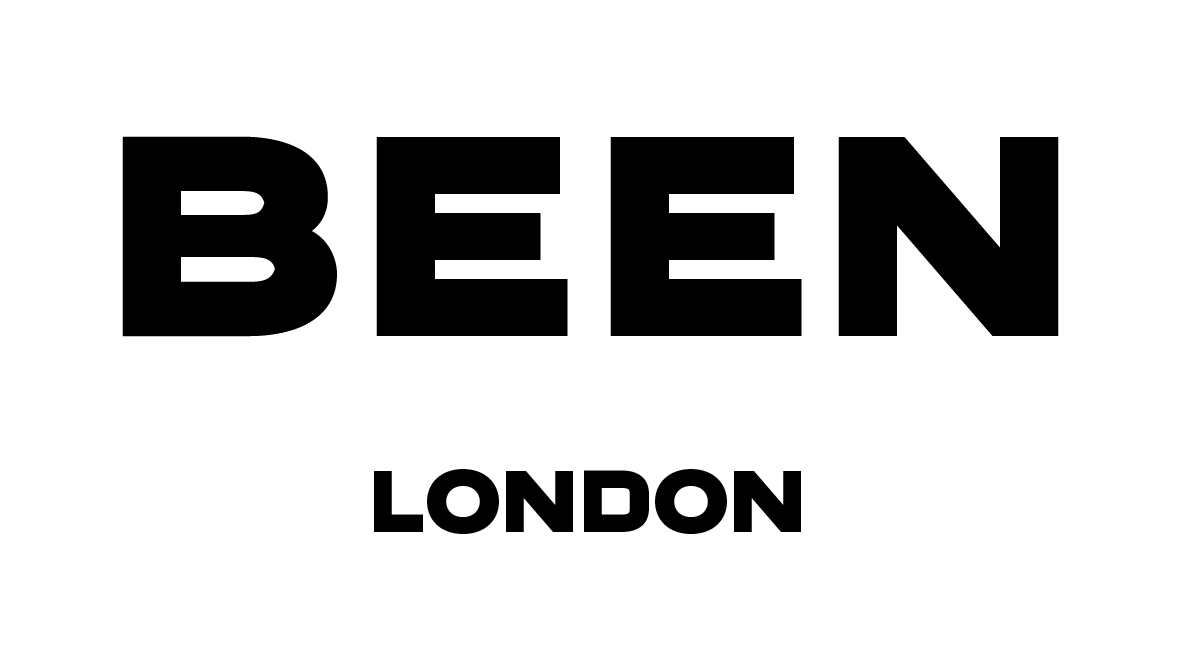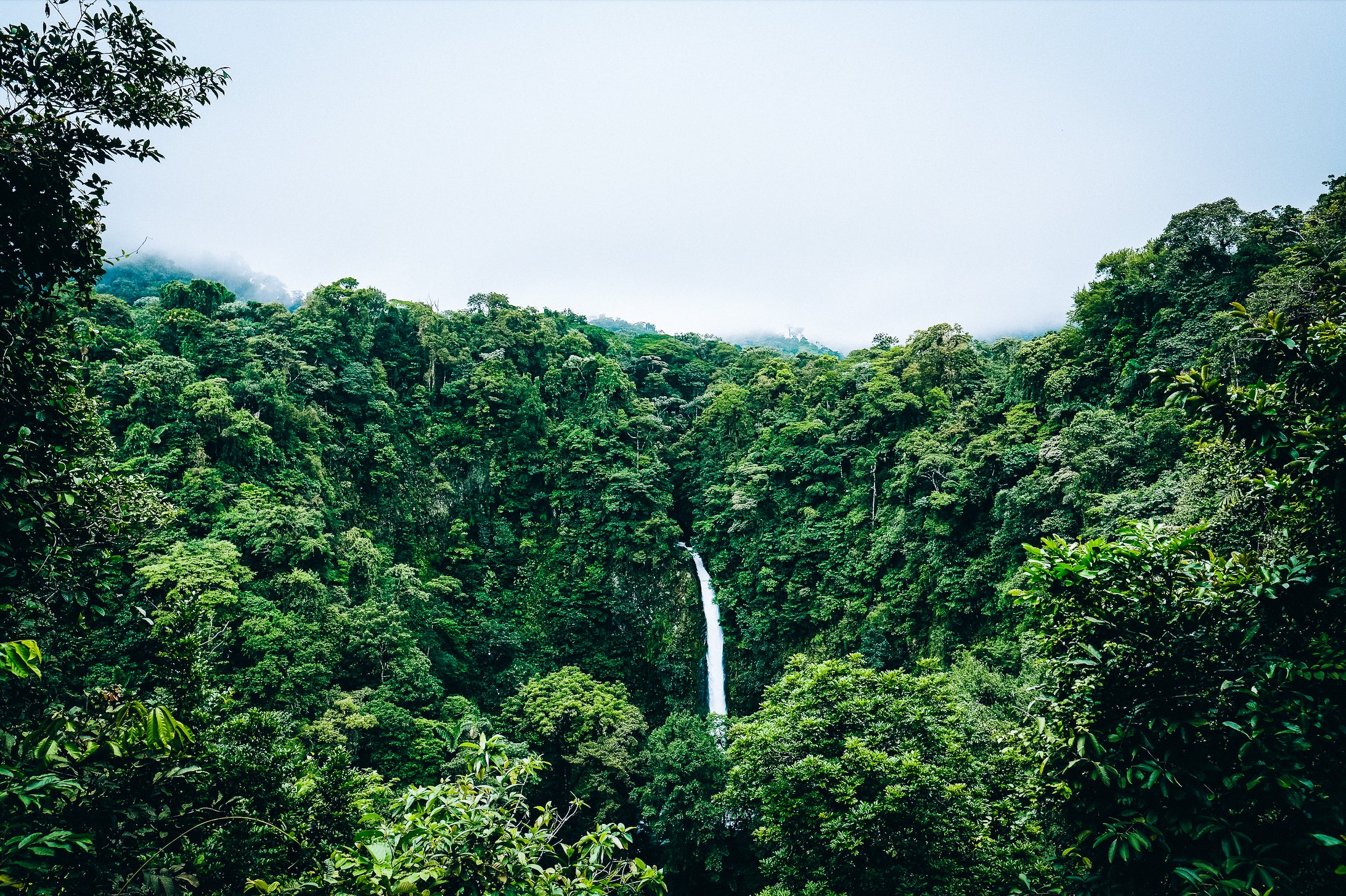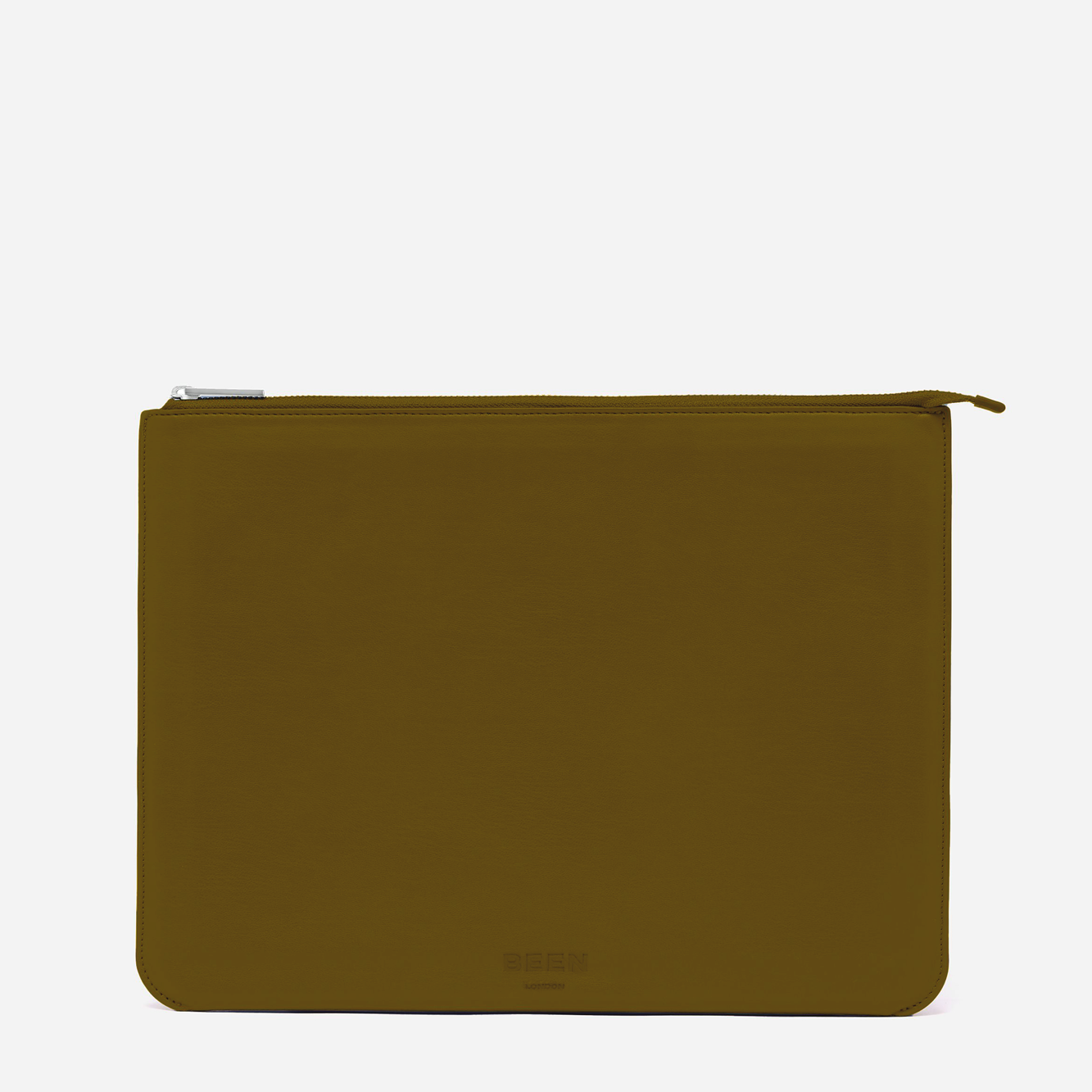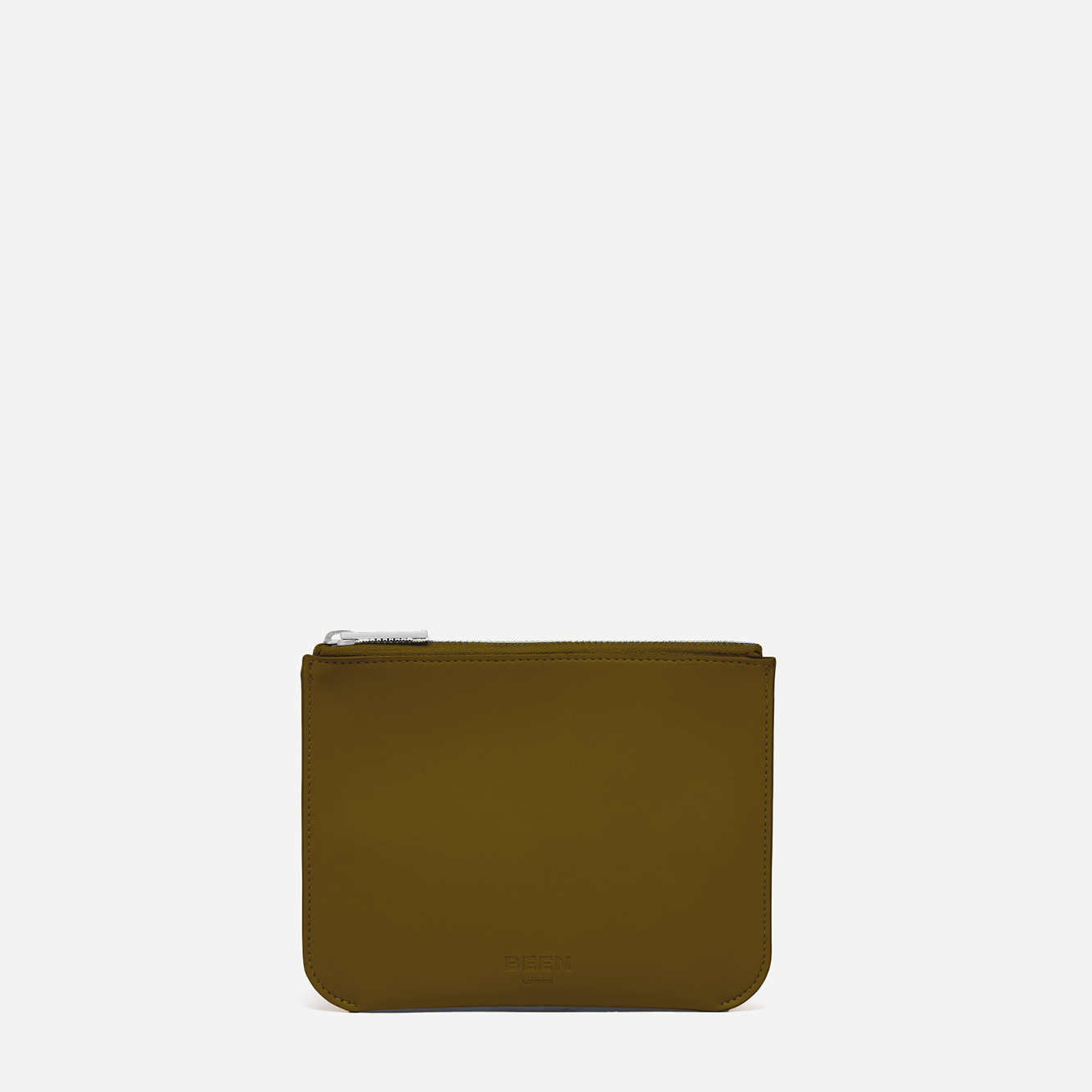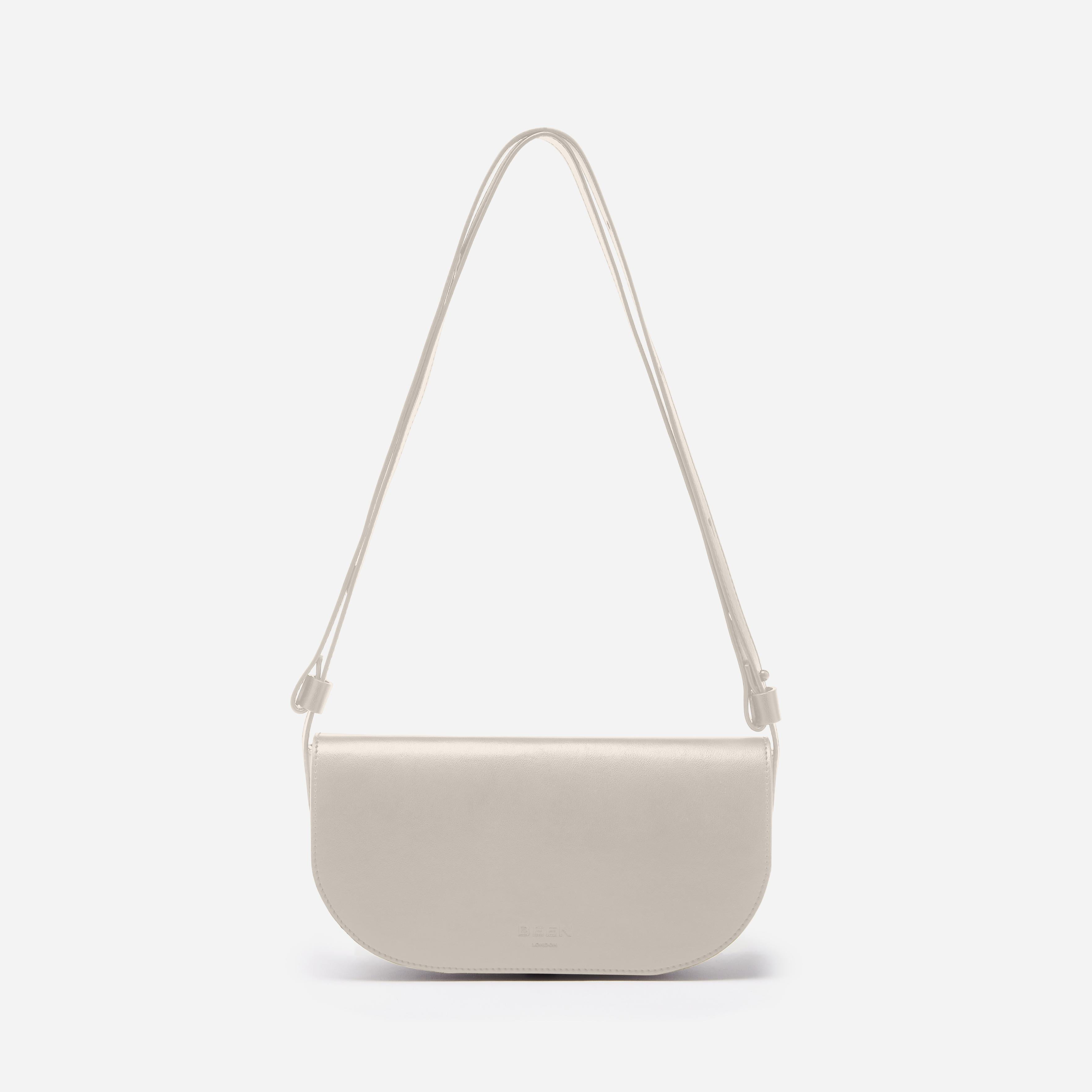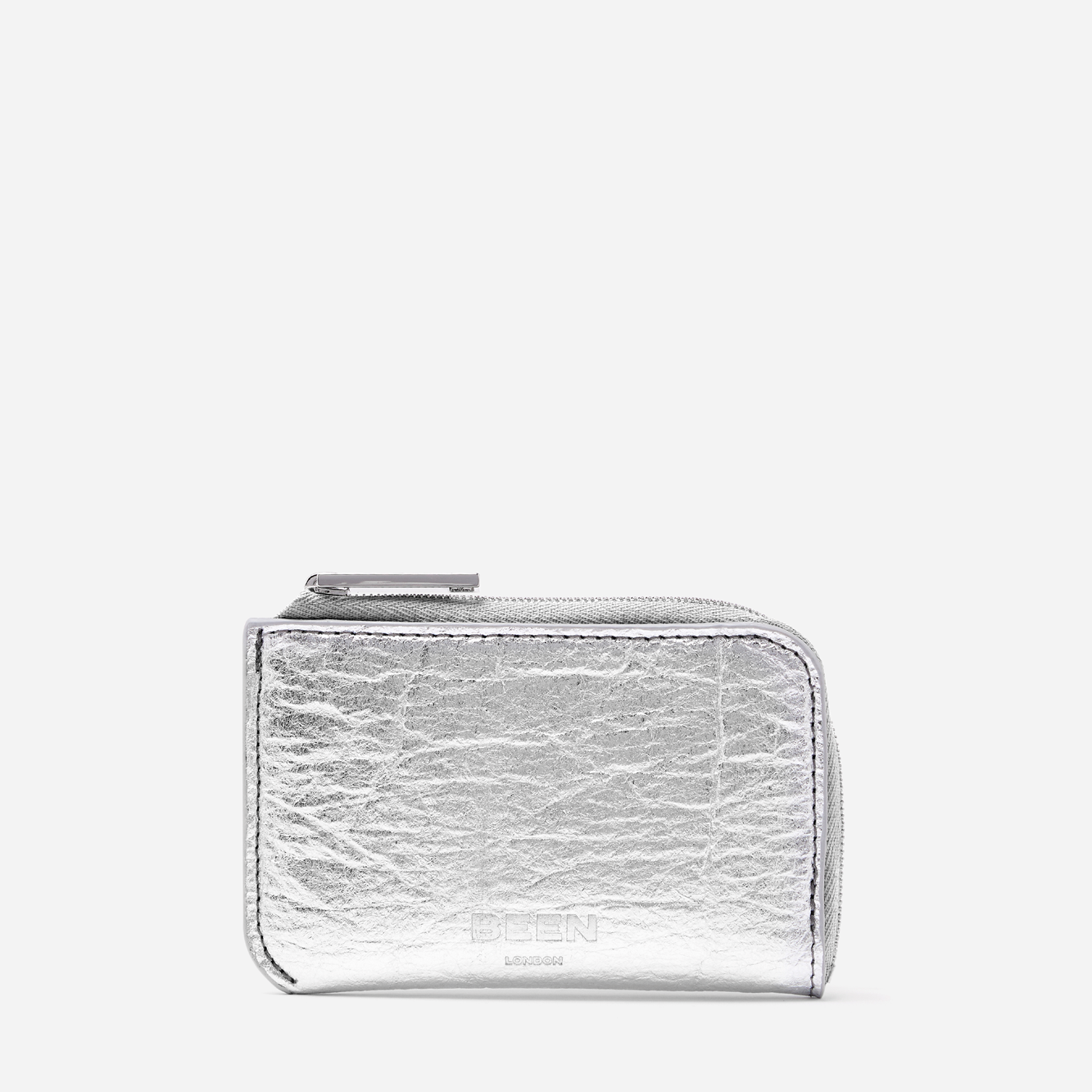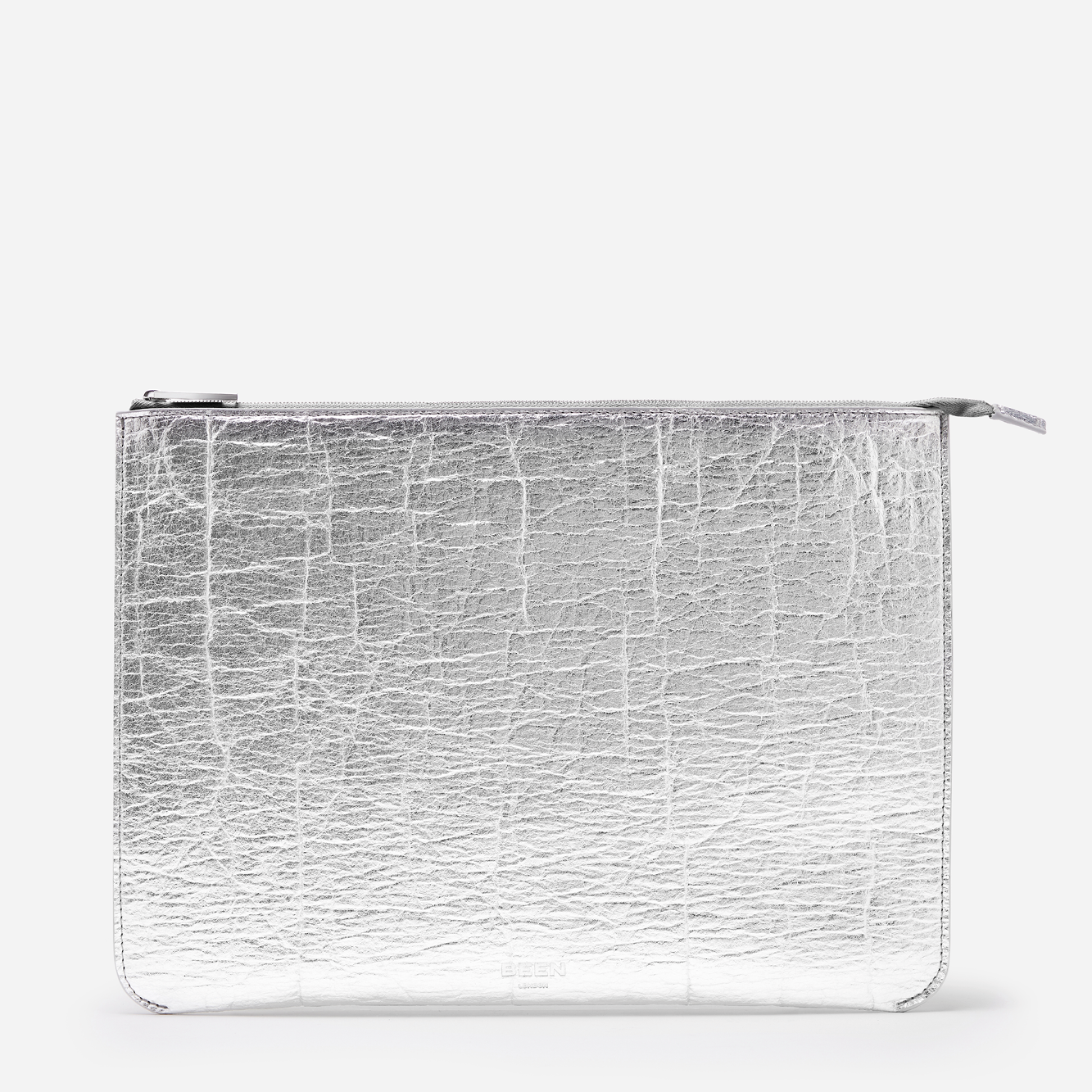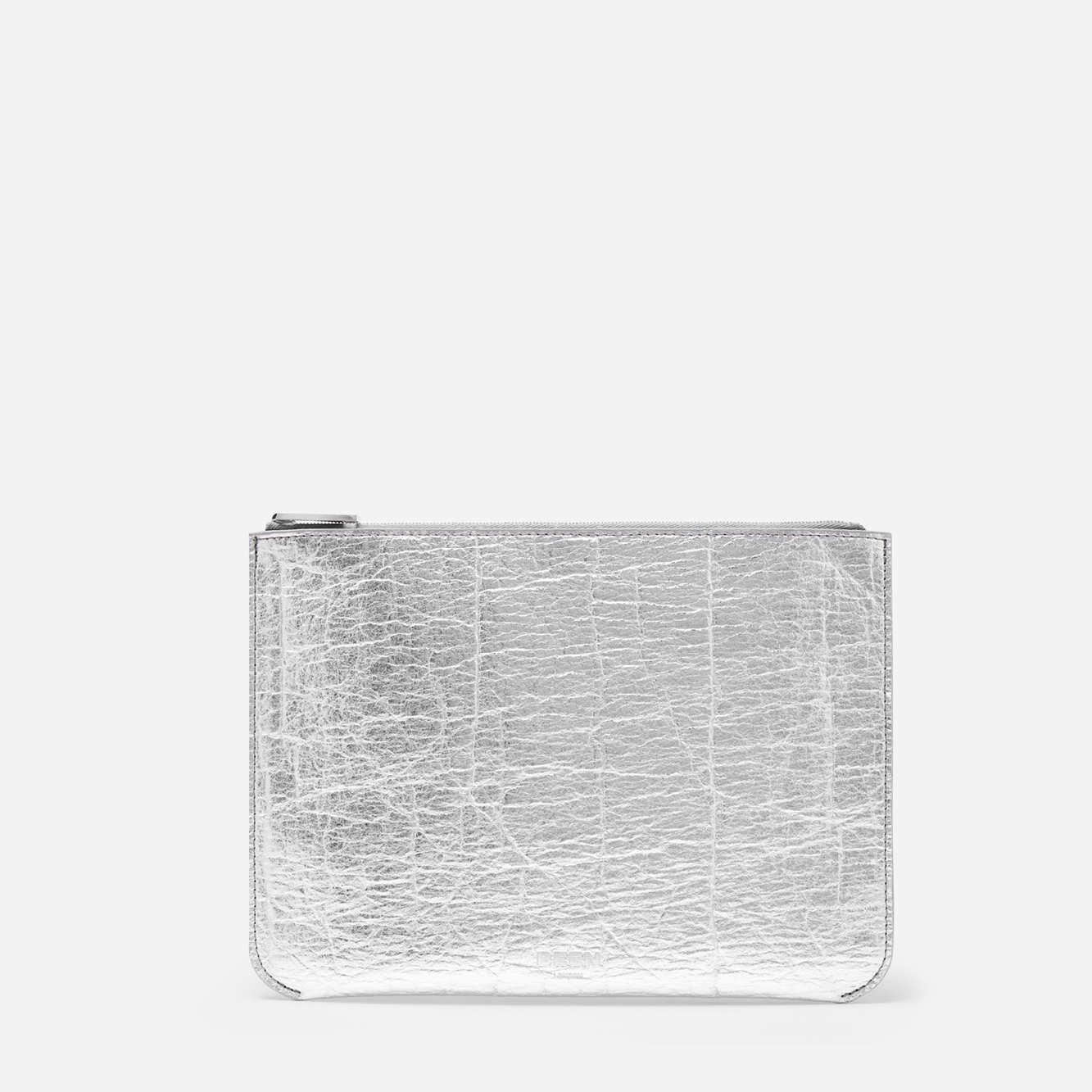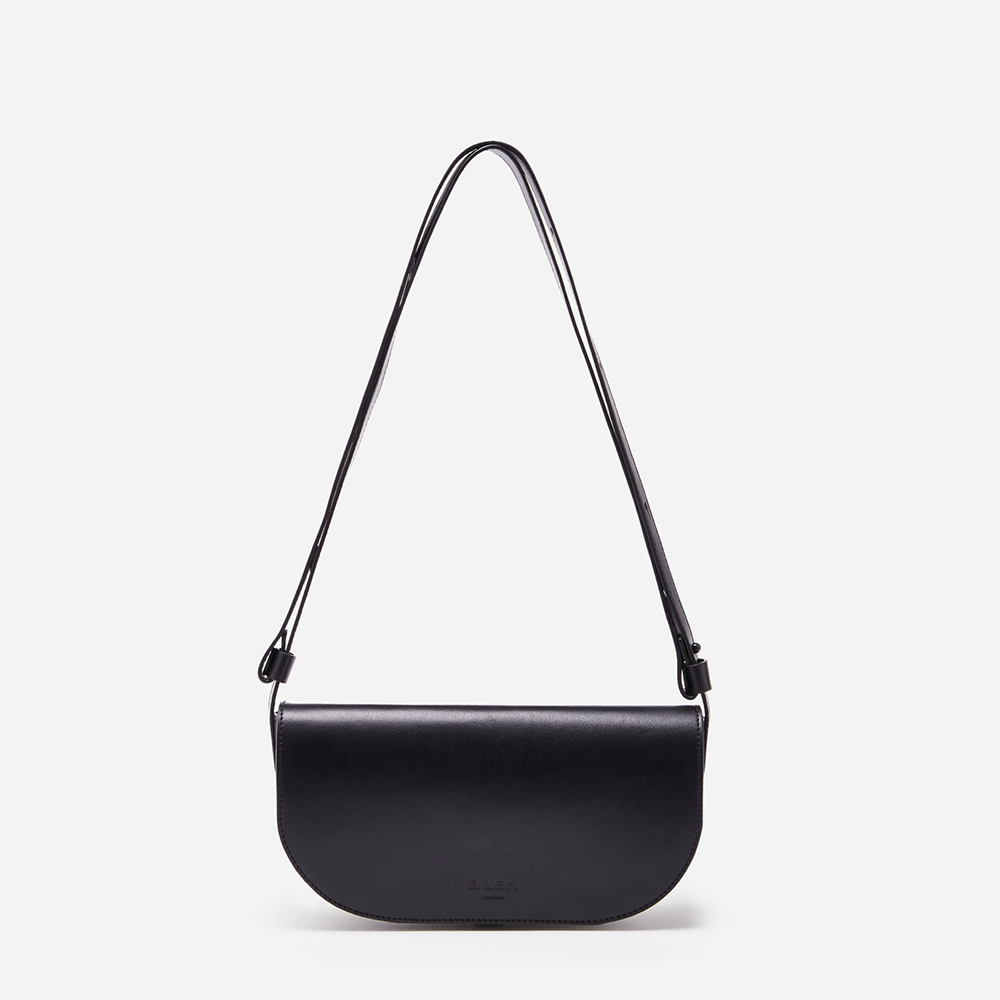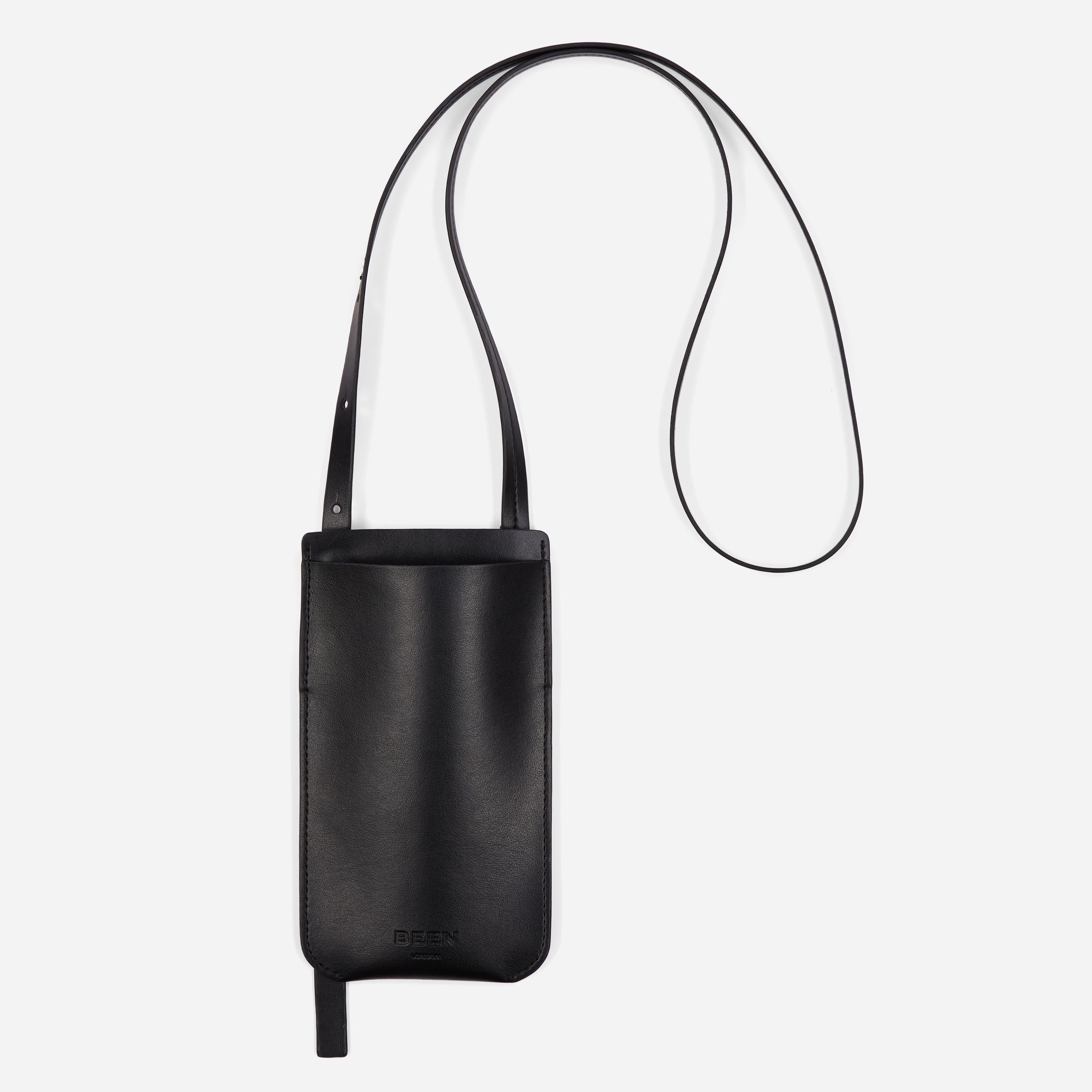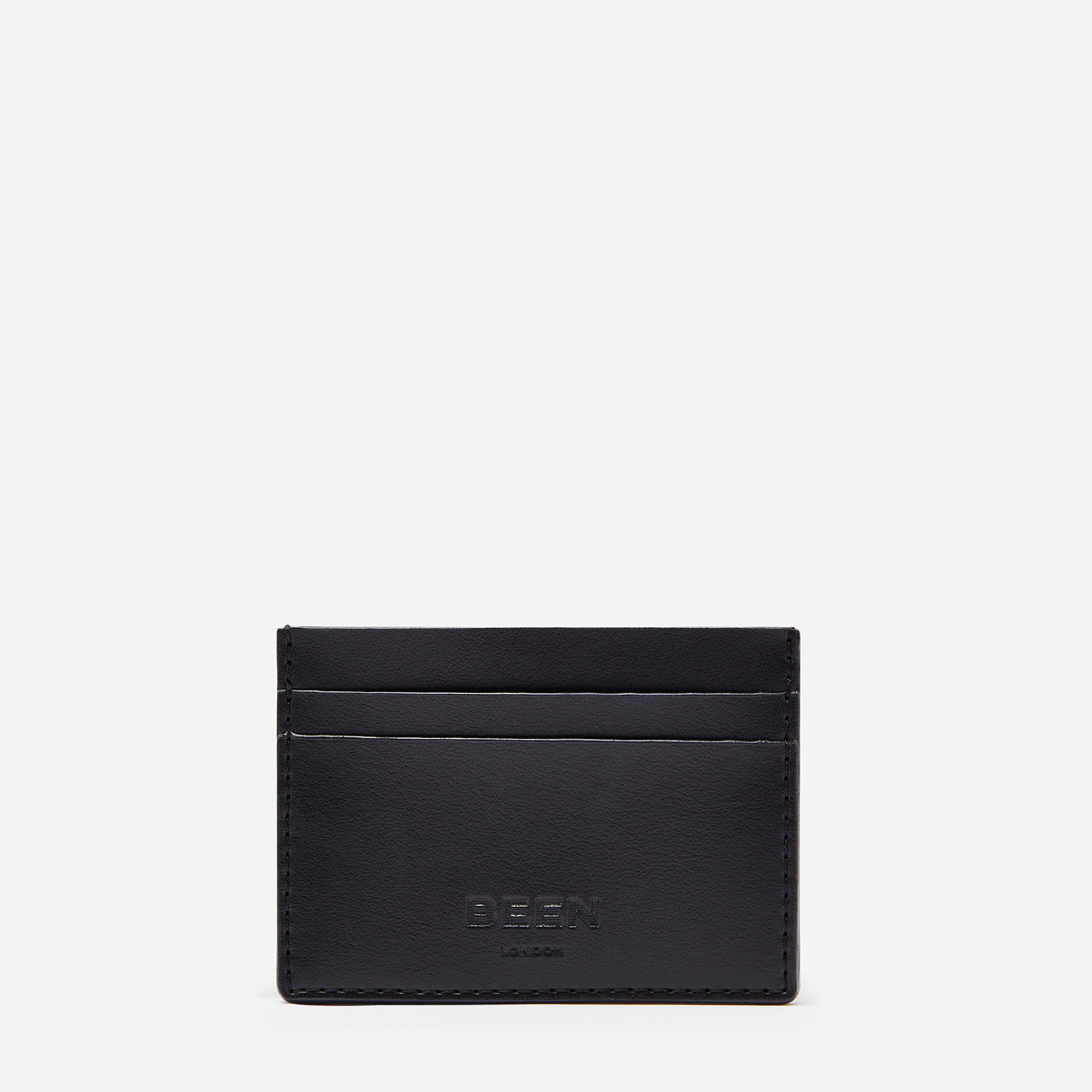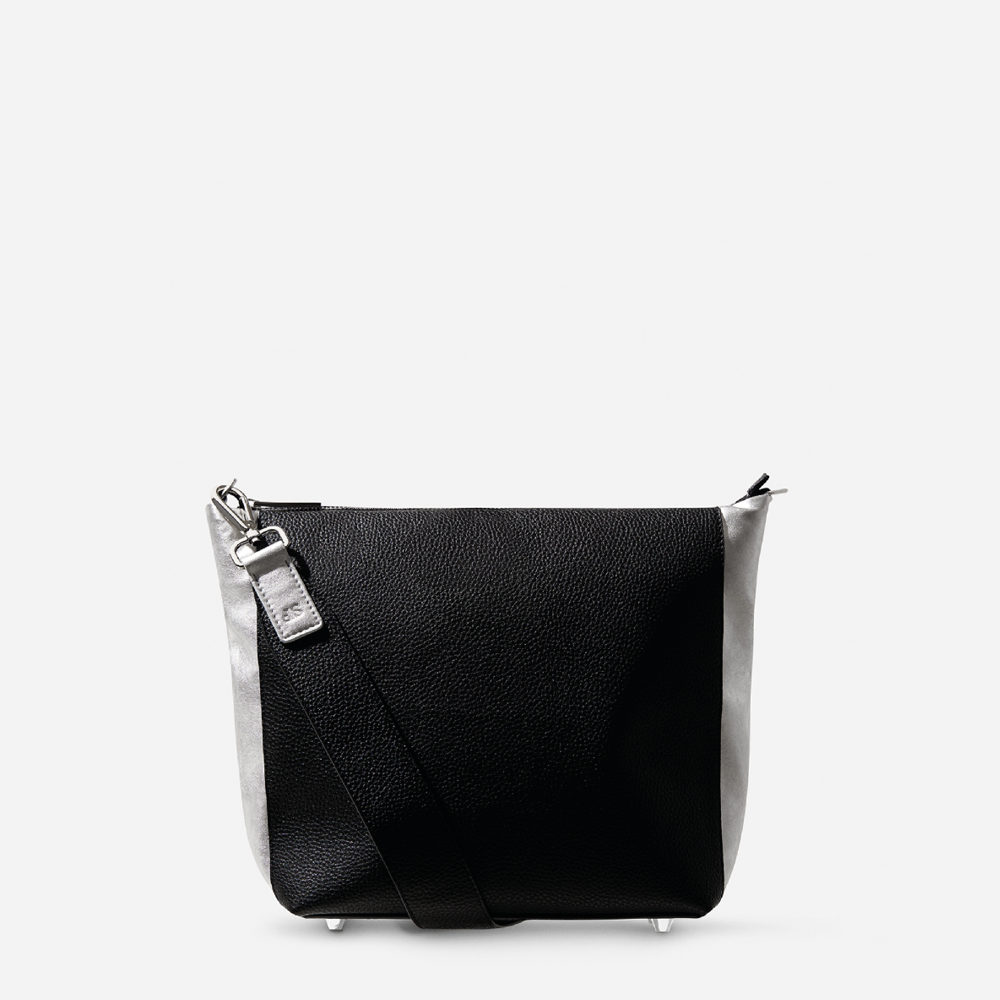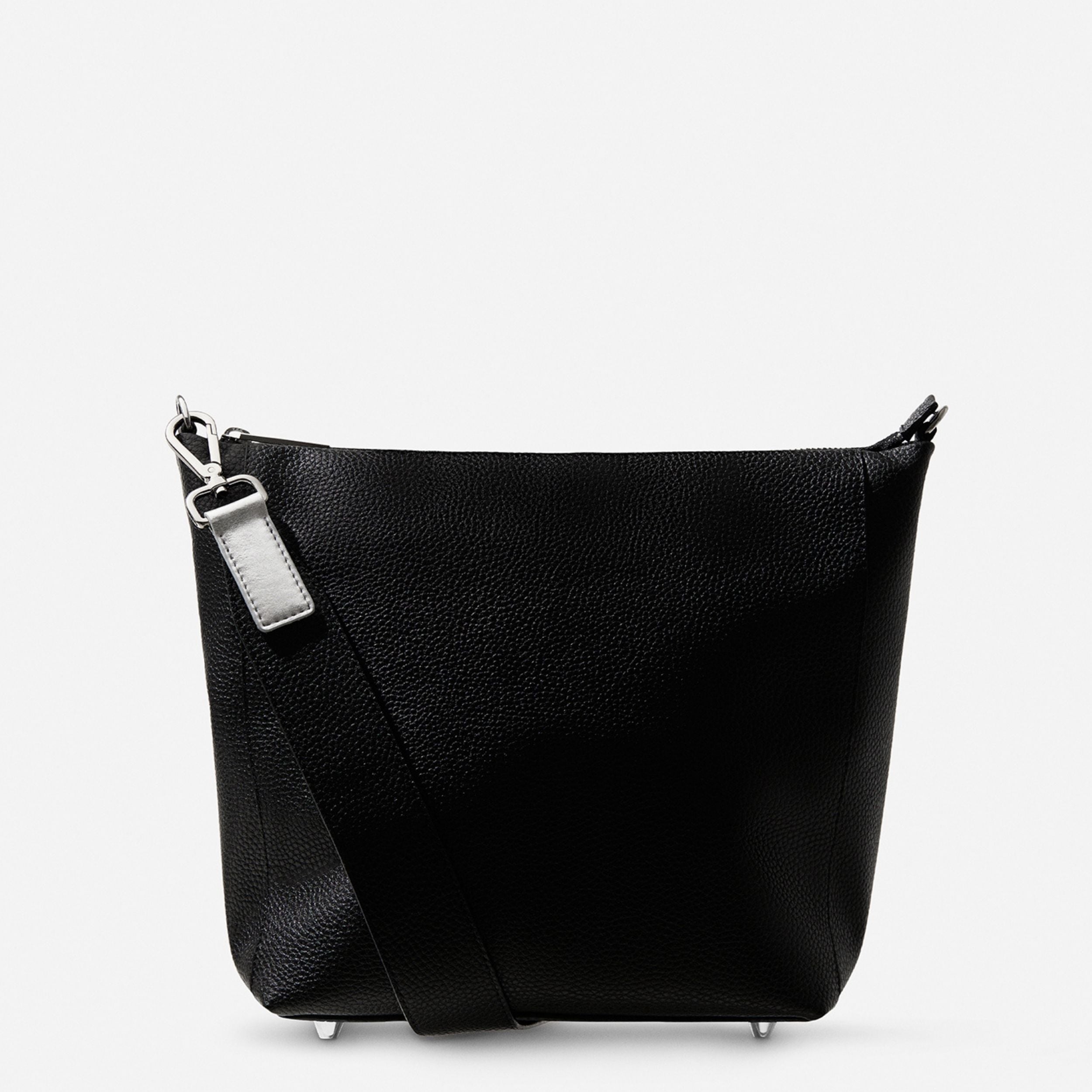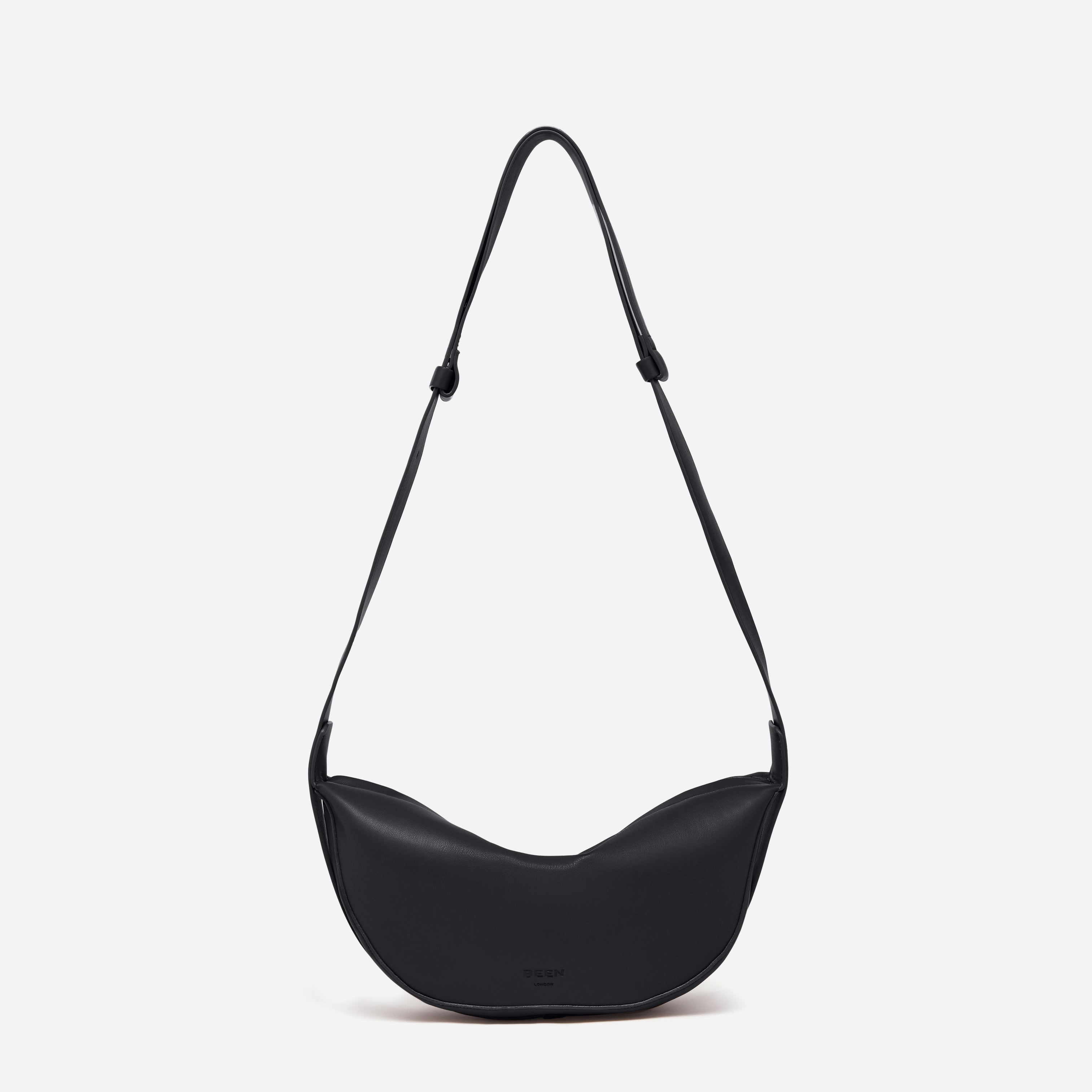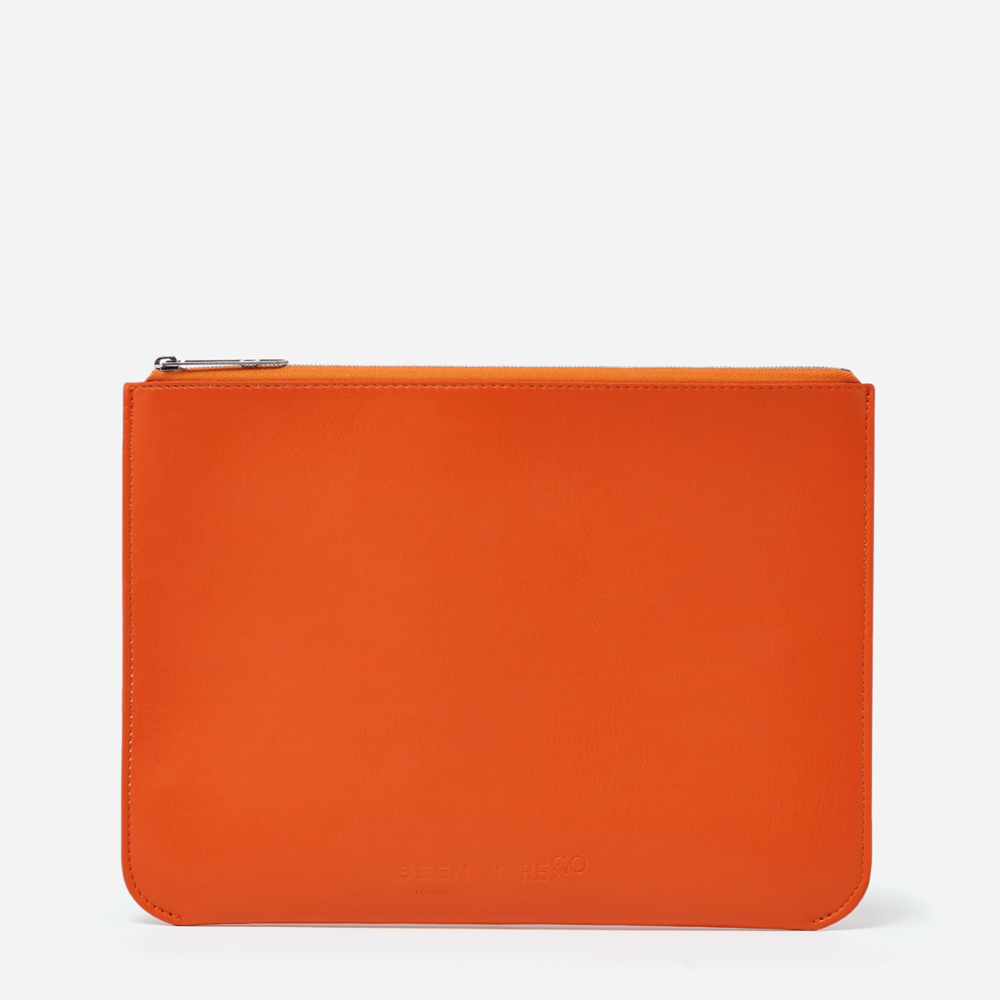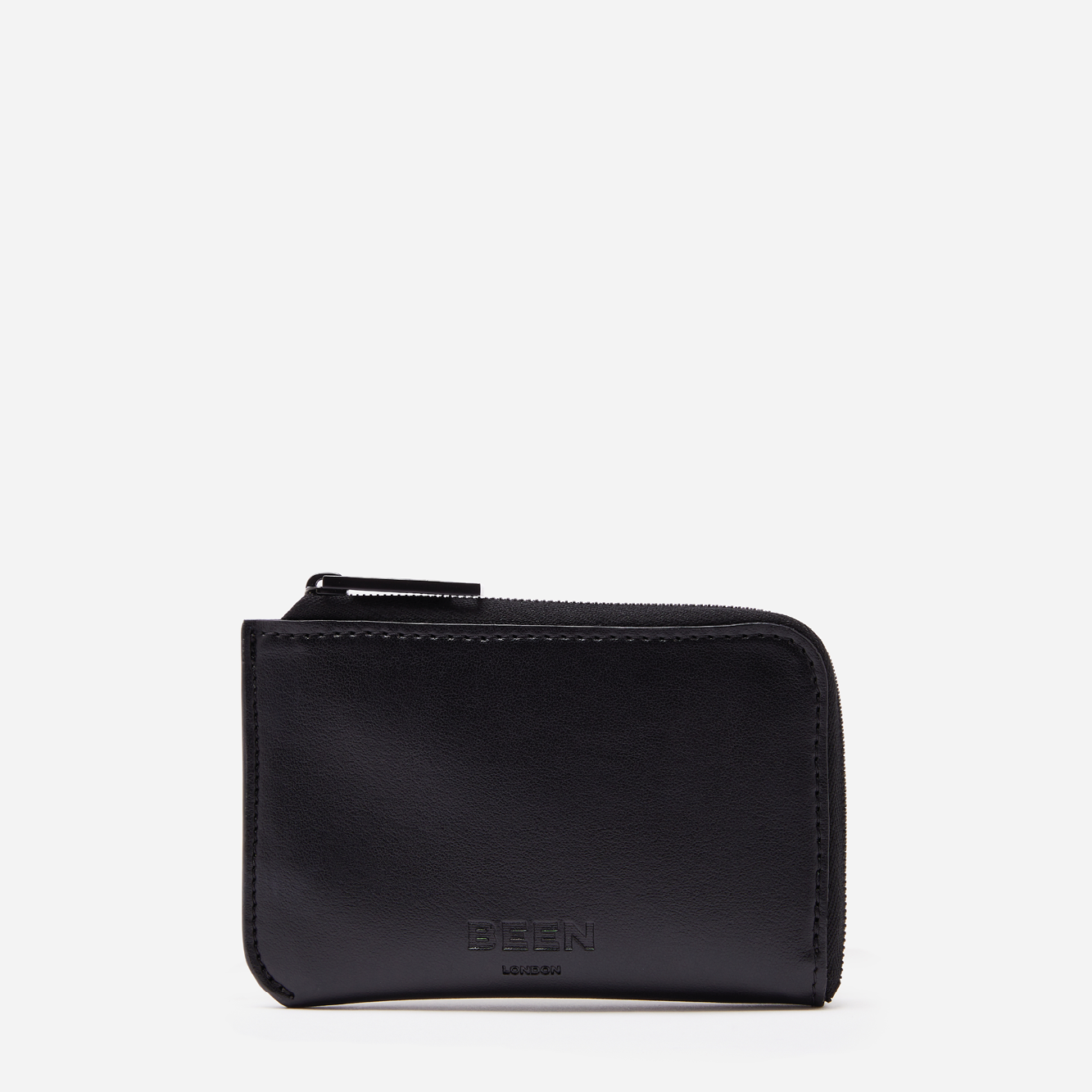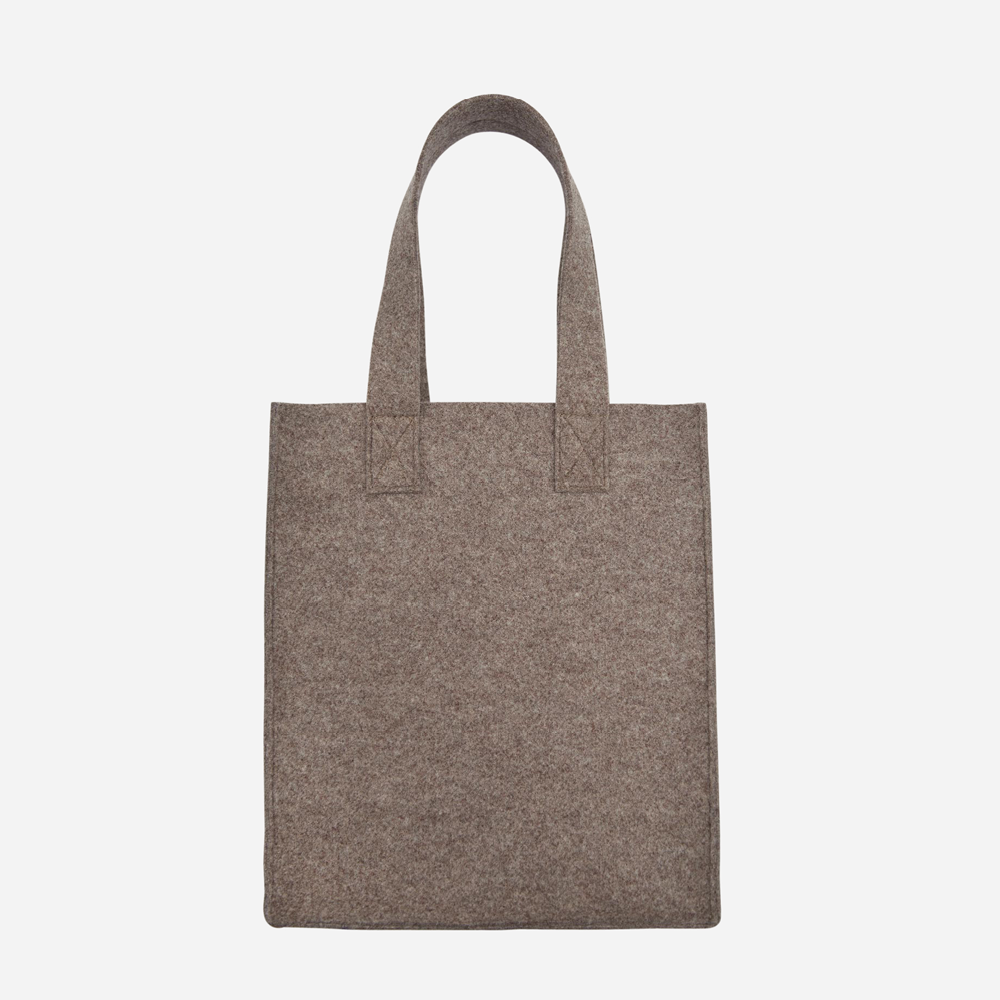We are always seeking new recycled materials to craft our accessories, and love meeting companies that share our passion for eliminating waste. Here are some of the incredible materials that we have used to create our collections over the years, including fabric made from tannery off-cut leather, discarded clothes, single-use plastic bottles, and even apple skins. Read their stories below.
RECYCLED LEATHER
Here at BEEN London we use recycled leather as part of our continued journey to divert waste from landfill.
See below our products made with recycled leather
WHY WE USE RECYCLED LEATHER
The annual global emissions from leather production are equal to that of 30 MILLION cars.
70 PERCENT of rainforest has been cleared to make way for growing feed crops for the leather industry.
THE PROCESS
Virgin leather has an extremely negative environmental impact. This is linked to deforestation, excessive water usage, waterway pollution and huge CO2 emissions that are inextricably linked to global warming. Our recycled leather is produced from tannery offcuts and trimmings which are diverted from landfill and re-formed using no adhesives, only high pressure water jets. Here at BEEN London we use recycled leather as part of our continued journey to divert waste from landfill.
CERTIFICATIONS
Our recycled leather is GRS (Global Recycle Standard) certified.
PIÑATEX
Piñatex is made from pineapple leaves, an agricultural waste product of the pineapple harvest. After further processing, it creates the base for a PETA-certified, vegan leather alternative.
WHY WE USE VEGAN PIÑATEX
Pineapple farming produces 13 TONNES of pineapple leaf waste each years globally.
By using discarded pineapple leaves as a base material for Piñatex, 264 TONNES OF CO2 is saved from entering the atmosphere.
THE PROCESS
Our partners at Ananas Anam collect pineapple leaves, an agricultural waste product of the pineapple harvest. Fibres are then extracted, cleaned and purified. This is then mixed with a corn-based polylactic acid and goes through a mechanical process to create a non-woven mesh, the base for a PETA-certified, vegan leather alternative.
CERTIFICATIONS
Piñatex is PETA Approved Vegan, certified by the Vegan Society and REACH Compliant, providing the assurance that it is free from harmful chemicals, as verified through testing performed by an independent laboratory.
APPLESKIN™
AppleSkin™ is an innovative vegan-friendly 'leather' alternative made from the unwanted peel and core of the apple juice industry.
WHY WE USE VEGAN APPLESKIN LEATHER ALTERNATIVE
25 PERCENT of the byproduct from apple production are discarded.
An estimated 3.7 TRILLION apples are thrown away each year for imperfections
THE PROCESS
Developed by FRUMAT and made in Italy by Mabel Industries, AppleSkin™ vegan leather alternative was born as a solution to apple juice production waste in Northern Italy. It is formed from the unwanted peel and core of apples which are dried and ground into a powder. The power is then mixed with a binder and pigment to be spread onto a canvas until it turns into a leather-like material.
CERTIFICATIONS
AppleSkin™ is GRS (Global Recycle Standard) certified.
REGENERATED NYLON
This regenerated nylon is used at BEEN London to help support marine life and clean up our oceans.
WHY WE USE REGENERATED NYLON
More than 90% of the rubbish in the sea is plastic with the main culprits being nylon fishing nets.
Approximately 400,000 TONNES of carpets discarded in the UK alone annually.
THE PROCESS
Our partners at ECONYL® rescue nylon nets from the sea and carpets from going to waste. They sort, clean and purify nylon. A polymer is then added to this material and it is woven into textiles. This regenerated nylon is used at BEEN London to help support marine life and clean up our oceans.
RECYCLED POLYESTER
Post-consumer PET goes through the steps of chemical recycling to create a recycled polyester yarn. We use these zips with recycled polyester tape across all our products.
See below our products made with recycled polyester
WHY WE USE RECYCLED POLYESTER
500 BILLION plastic bottles are used each year.
For every TONNE of plastic recycled, 7.4 CUBIC YARDS of landfill space is saved.
THE PROCESS
Our partners at YKK, created NATULON® eco-friendly zips from single use plastic bottles. Post-consumer PET goes through the steps of chemical recycling (granulation, purification, and polymerisation) to create a recycled polyester yarn. We use these zips with recycled polyester tape across all our products.
RECYCLED COTTON
We use recycled cotton as a lining across our entire range at BEEN London to give discarded clothes another chance!
See below our products made with recycled cotton
WHY WE USE RECYCLED COTTON
It takes 10,000-20,000 LITRES of water to produce 1KG of virgin cotton.
13 MILLION TONNES of textile waste is produced each year.
THE PROCESS
Cotton is the world’s largest non-food crop. It demands large amounts of water, is heavily reliant on pesticides and can often be thought to have questionable practices in terms of labour. To make our recycled cotton, discarded clothes are sorted by colour and mechanically shredded. These are then spun into yarns and re-woven. We use recycled cotton as a lining across our entire range at BEEN London to give discarded clothes another chance!
RECYCLED FELT
This beautiful recycled felt is used at BEEN London as a protective layer in the Dalston Laptop Case and as a structural element of the Islington Backpack.
See below our products made with recycled felt
WHY WE USE RECYCLED FELT
350 TONNES of clothing goes to landfill each year.
90% of corporate uniforms in the UK are sent to landfill each year.
THE PROCESS
Used corporate uniforms are collected from KLM airlines and IKEA in the Netherlands. These uniforms are shredded until they became a fine fibre. They are then mixed with recycled PET from plastic bottles and needled onto a polyester core. This beautiful recycled felt is then used at BEEN London as a protective layer in the Dalston Laptop Case and as a structural element of the Islington Backpack.
